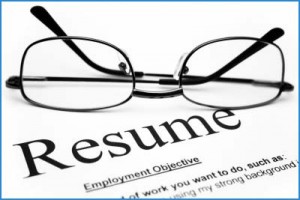



Most people (especially desperate job seekers) believe that their resumes can actually grant them jobs. However, nothing can be further from the truth; it is misleading to believe that. Resumes, CVs, and even Cover Letters were meant to generate the interest of potential employers. This interest is usually expressed by inviting a candidate for an interview (not hiring him/her right after reviewing a resume). There are certain formats and content that can increase one’s chances of getting an interview invite.
First and foremost, one has to be sure that his/her resume message is clear. Very often job seekers assume that people who will read their resumes will understand everything, which is wrong. HR authorities don’t necessarily have the same background information and experience. That also means they don’t necessarily understand all of the acronyms or professional slang words used. When we say your resume message should be clear, we mean that even high school senior could easily understand where you worked, what you have you done, and how successful you have been. 
Secondly, “What can you do for the company now?” is the question to be addressed throughout your resume. It is not about your objectives – hiring authorities don’t care about your objectives. What they care about is their objective and their development. All of your sections should in a way or another demonstrate what you can do for the company to help it achieve its objective. Most companies are not interested in a long term perspective, because chances are they won’t be there long, and they know they have to perform today in order to have their jobs tomorrow.
Thirdly, you have to highlight the information hiring authorities will be looking for in your resume or CV. As you may already know, it takes about 10 seconds to review one document. So it is more like scanning rather than reading. There are certain things that hiring resource representatives are looking for and highlighting this kind of information will demonstrate your willingness to assist. One of the very first things they are looking for would be your accomplishments (i.e. increased sales by 18% by initiating innovative sales techniques and training sales staff…) – they have to be very specific. The companies for whom you’ve worked, how long you were there, the positions you held are also among the top thinks sought by HR managers.
There are at least 100 resumes received for every job posted to the public. Therefore, it takes only 10 seconds to scan one. These two facts tell us that a resume should be clear, precise, and relevant. One of the things you could do before applying for any job openings, ask your relatives or friends to read the resume and then check to make sure it has communicated exactly what you wanted. Nothing you think about your resume matters unless it helps you to get interview invitations (remember your resume is a sales tool to land you an interview). When you are invited to an interview – that’s where you have to prove that you are the right person for a job opening. As soon as you are scheduled for an interview – it is your personality, professionalism, and communication skills that will either grant you a job or disqualify you.
For more insight, check our article on organizing resume sections.







